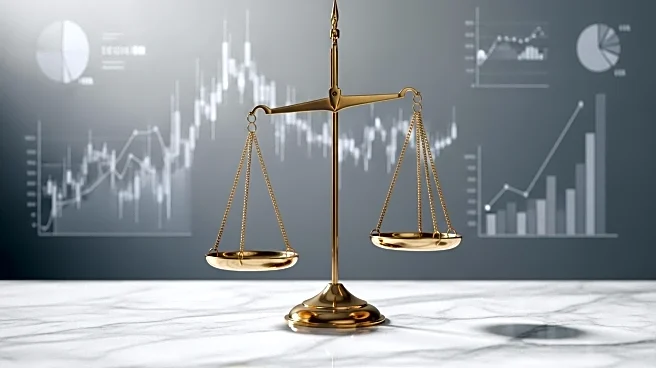What is the story about?
What's Happening?
President Trump has advocated for a significant reduction in the Federal Reserve's interest rates, suggesting a cut of three percentage points. This proposal aims to lower borrowing costs for consumers and businesses, potentially saving the government substantial amounts in interest payments on national debt. However, experts warn that such a drastic cut could lead to unintended consequences, including increased inflation and higher long-term interest rates. The Federal Reserve traditionally makes incremental changes to interest rates, and a large cut could disrupt market stability and investor confidence.
Why It's Important?
The proposed aggressive rate cut by President Trump could have significant implications for the U.S. economy. While lower rates might stimulate short-term borrowing and spending, they could also lead to higher inflation, eroding the value of money and increasing costs for long-term loans. This could affect consumer mortgages, corporate loans, and government debt servicing. The independence of the Federal Reserve is crucial for maintaining economic stability, and any perceived political influence could undermine investor trust and the foundational norms of U.S. economic policy.
Beyond the Headlines
The debate over interest rate cuts highlights broader concerns about the balance between economic growth and inflation control. The independence of the Federal Reserve is a cornerstone of U.S. economic policy, and any actions perceived as politically motivated could have long-term implications for market stability and international confidence in U.S. financial institutions. The potential appointment of loyalists to key positions within the Fed raises questions about the future direction of U.S. monetary policy and its impact on global economic dynamics.














